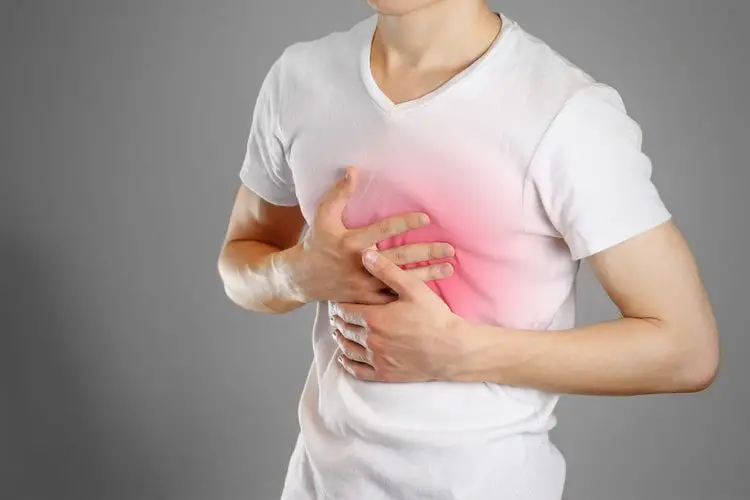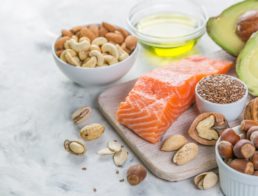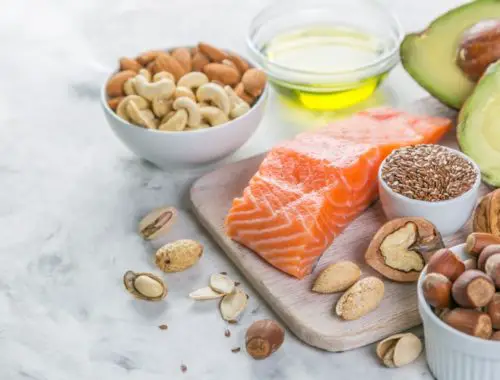Late night heartburn can ruin any night out. If you suffer from frequent heartburn (also known as gastroesophageal reflux disease or “GERD”), there are several dietary and lifestyle changes you can make to reduce the frequency and severity of your heartburn. Keep reading for information about how to get rid of heartburn.
In this article, you will see a multifaceted approach to reducing heartburn, however, make sure to consult a doctor or registered dietitian if your heartburn persists. What causes heartburn can vary greatly between individuals, so it is important to establish a personalized action plan with your healthcare team.
-
Achieve or maintain a healthy weight.
Carrying around excess pounds can put pressure on your stomach and trigger heartburn symptoms, according to a press release from the American Society for Gastrointestinal Endoscopy. In general, a healthy weight can be measured calculating body mass index (also known as BMI). A normal weight BMI falls between the values of 18.5 and 24.9.
To find out your current weight status, use this BMI calculator by the National Heart, Lung, and Blood Institute. While BMI is great for getting a general idea about your weight status, your healthcare team can give you a comprehensive weight assessment. Ultimately, BMI is affected by several factors, so consult your registered dietitian to determine the best weight for you.
-
If you smoke, then quit smoking.
Smoking increases your risk for many conditions, including heartburn. If you are experiencing frequent heartburn and are a smoker, then use heartburn relief as motivation to quit. There are many over-the-counter gums to help you quit smoking, however, make sure you are being followed by a doctor throughout your entire smoking cessation journey.
-
Eat several small meals instead of 3 big meals.
Large meals tend to distend our stomach, which can open up your lower esophageal sphincter to letting stomach acid and liquids back up into your esophagus. If stomach acid bubbles up into your esophagus, then it can really burn! By eating several small meals throughout the day, you can reduce stomach distension and help your lower esophageal sphincter stay tight. Try consuming 6 small meals throughout the day and see how your symptoms change.
-
Wear loose-fitting clothing when you eat.
Another tip for reducing heartburn is to wear loose-fitting clothes during meal time. When we wear tight clothes that restrict us, especially around the waistline, you may be uncomfortable and constricted. Such stress during meal time can trigger heartburn. Above all, keep meal times relaxed, comfortable and stress free!
-
Know your trigger foods.
What are trigger foods for heartburn? Trigger foods are any specific foods that promote heartburn symptoms after consumption and these can vary greatly from person to person. Common heartburn trigger foods include:
- Alcohol
- Spicy foods (i.e. hot sauce, pepper)
- Mint
- Caffeinated beverages (and even possibly their decaf counterparts)
- Chocolate
- Fatty foods (i.e. fried foods, full fat milk, fatty desserts, pizza)
- Nuts and nut butter
- Processed meats (i.e. bologna, salami)
- Large amounts of butter or oils
You may also know of other specific foods that give you heartburn. In order to decrease your heartburn frequency, try to avoid these foods as much as possible. If you do decide to consume a trigger food, be proactive with your prescription-strength heartburn medication or over-the-counter products that work best for you.
-
Separate your liquids from solids.
If you have already reduced your meal size and still experience heartburn, then try separating your liquids and solids during meal time. Instead of having your drinks in conjunction with your food, consume your drinks 30 to 60 minutes before or after your meals. Liquids can slosh around your stomach until the rest of your food is ready to move into your intestines, so separating them out can help your stomach focus on digesting the solids.
-
Don’t eat right before lying down.
It is best to wait at least 3 hours after eating before laying down and going to bed. This gives your stomach time to digest the food and start pushing the food into your intestines. In fact, consider taking an after-dinner walk to massage the gut and keep things moving.
-
Raise the head of your bed by 6 to 9 inches.
When we lay flat, especially after eating a meal or drinking liquids, our stomach contents can creep back up into our esophagus. So, make sure to raise the head of your bed with pillows or try this awesome pillow wedge to keep the contents in your stomach.
The Bottom Line to Getting Rid of Heartburn
Regardless of which tips you try, make sure to keep a log as to what changes you made and how the changes affect your heartburn. This data is helpful in recognizing patterns and identifying the primary cause of your heartburn.









